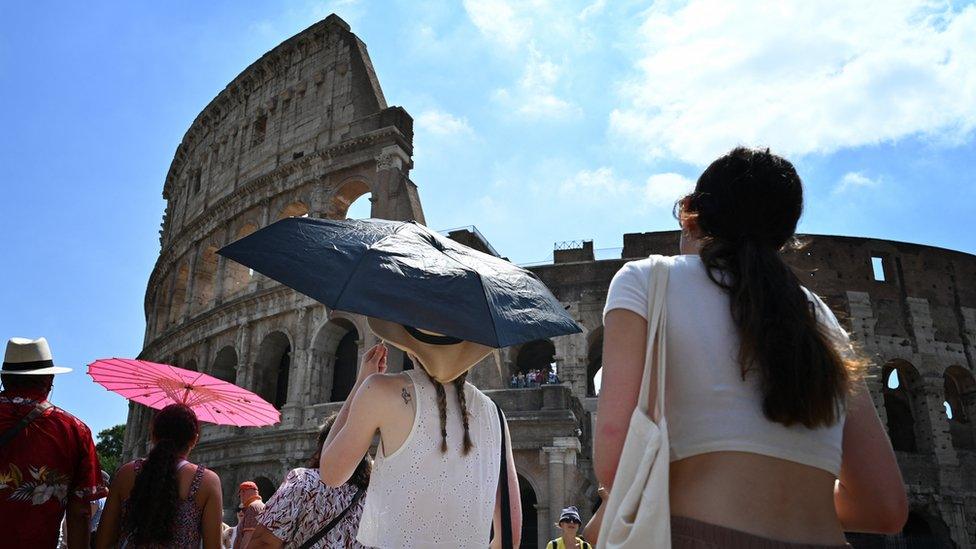Europe heatwave: How are NI people abroad coping?
- Published
Northern Ireland holidaymakers focus on hydration and shade amid European heatwave
A period of intense heat is continuing to sweep southern Europe and extreme conditions are expected to intensify further in the days ahead.
Italy, Spain, Turkey and Greece - hugely popular with holidaymakers and expats from Northern Ireland - are among the countries worst affected.
The heatwave is expected to continue into next week.
BBC News NI has been hearing how some people from Northern Ireland who are in Europe are dealing with the heat.
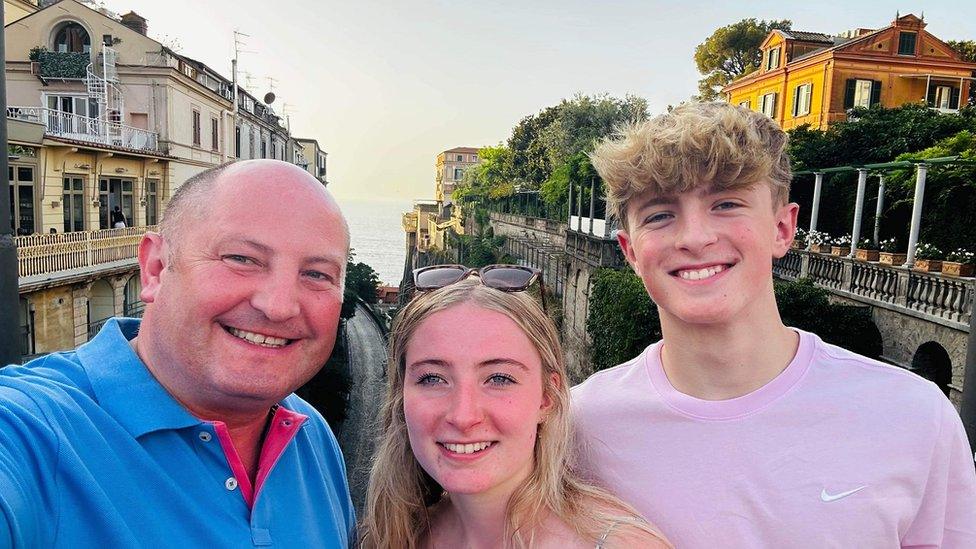
Mark Regan and family are holidaying in Italy, one of the worst affected countries
Mark Regan from Templepatrick in County Antrim is on holiday with his family in Italy where the government has issued red alerts for 16 cities.
Mark described being "absolutely baked" while visiting Pompeii.
"The worst bit is trying to do tourist attractions - go get the tickets, lots of walking etc. The sweat is literally dripping off you," Mark told BBC News NI.
"We were expecting it to be warmer [than usual] but this is something different. We're force feeding ourselves water to keep hydrated - you really have to remember to keep drinking."
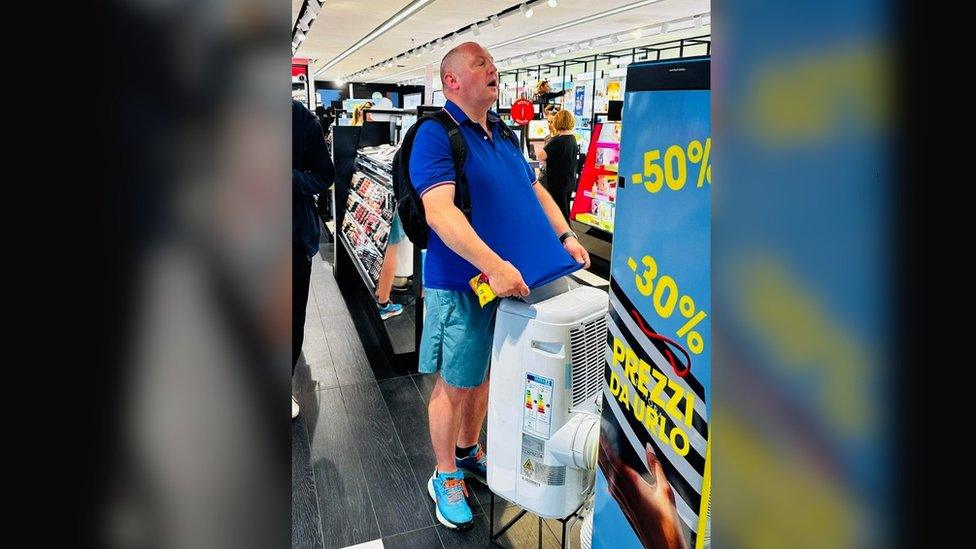
An in-shop air conditioner provides a means of escape from the heat for Mark Regan
Mark said he felt the holiday heat was "just on the borderline of safe" and that he would be happy to return to Italy next year.
"I think we can still enjoy it," he said. "But, of course, enjoy it safely."
Former Irish league footballer Brian Russell is on holiday in the Costa Del Sol, where he said he is "absolutely roasting".
Allow X content?
This article contains content provided by X. We ask for your permission before anything is loaded, as they may be using cookies and other technologies. You may want to read X’s cookie policy, external and privacy policy, external before accepting. To view this content choose ‘accept and continue’.
"Fifty per cent of people under parasols, the other 50% in the swimming pool, my flip flops just melted," the former Crusaders and Glentoran striker tweeted on Monday.
Stacy Fitzpatrick from Londonderry is also in Spain. She lives in the capital of Madrid where she owns a bar.
On Monday temperatures there peaked at 43C, she said.
"The biggest problem is sleeping. It is so difficult to sleep because the temperature isn't at its lowest until 7am - then it's in the mid to high 20s, and it starts to gradually increase again," she told BBC Radio Foyle's The North West Today programme.
"So you are sleeping in plus-30C. It is very difficult, sweating constantly. It leaves you very tired."
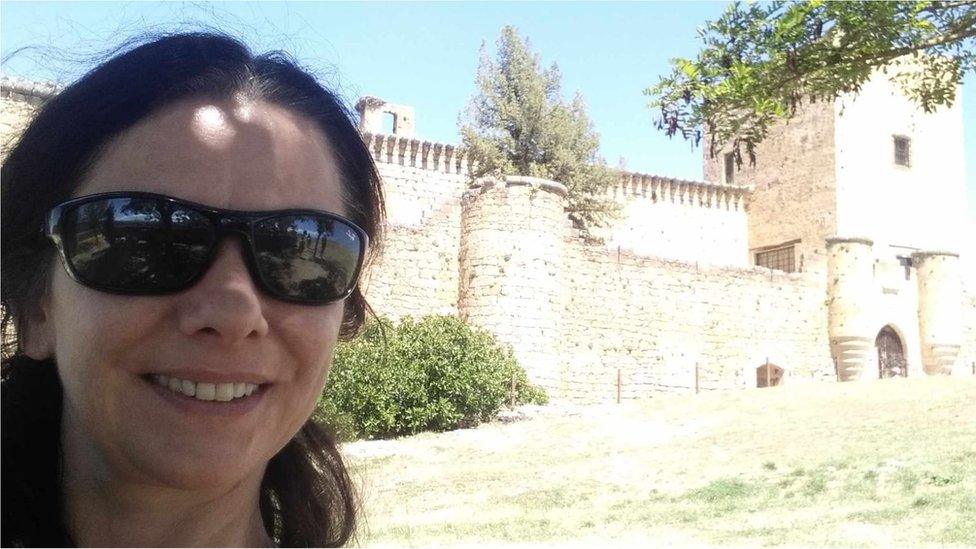
Stacy Fitzpatrick says sleeping is difficult as the temperature does not dip to its lowest until morning
After a similar weather pattern in the summer of 2022, Stacy said perhaps the extreme heat should now be viewed as "the standard climate for Spain in the summer".
It is changing how people behave too, she said.
Customers are now only coming out much later in the evening - post-9pm is now the norm.
Any earlier in the day "it is too uncomfortable - you are seeing many businesses and bars empty".
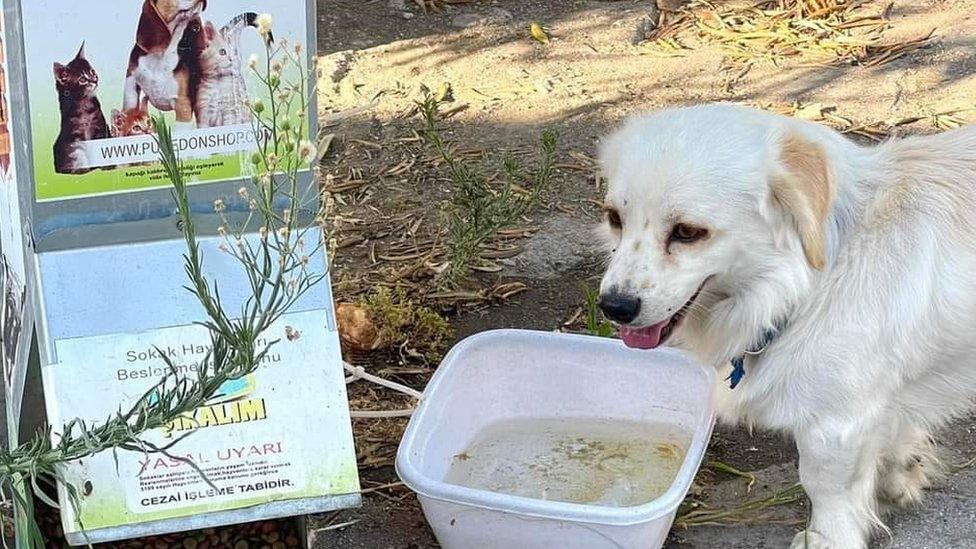
David Graham says temperatures in Turkey - where he runs an animal sanctuary - have been "brutal"
David Graham, originally from Coleraine in County Londonderry, has been living in Turkey for two years.
He runs an animal sanctuary in Dalyan on the country's south-west coast.
On Monday evening at 18:30 local time the temperature was 38C.
"The temperatures were brutal on Friday and Saturday and it is to be hotter again in the week ahead," he said.
That means more runs across town to the 30 feeding stations the sanctuary provides for cats and dogs.
"We have a lot of sick, dehydrated animals due to the heat. It is really tough in this heat," said David.
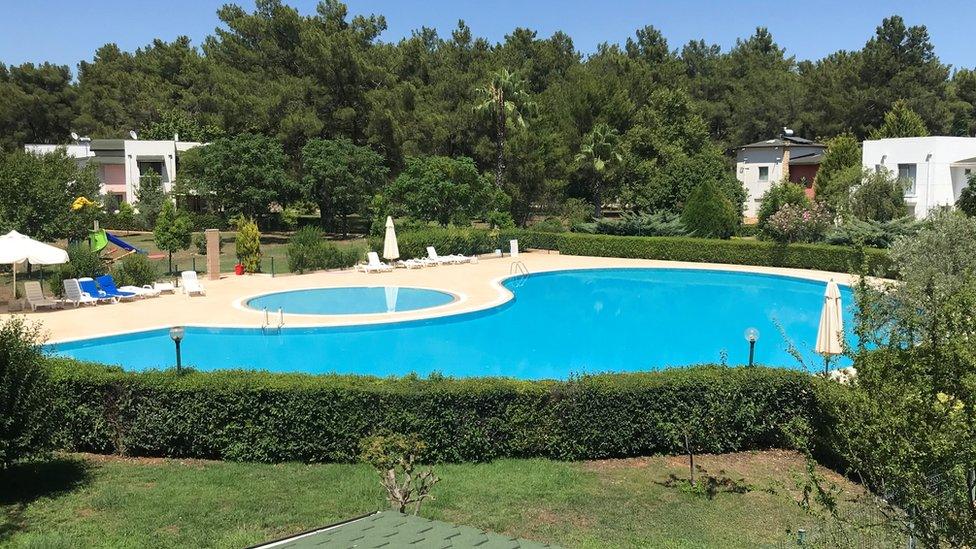
Justine Acar says it is too hot to get in the pool in Turkey
Justine Acar is originally from Belfast but has also lived in Turkey for a number of years.
"The news keeps mentioning Europe but Turkey is possibly even worse. Our car registered 46C on Saturday. It's too hot to swim," she said.
'Avoid the sun'
Gavin McLaughlin, from Limavady in County Londonderry, has been teaching in the Italian city of Milan for two years.
It lies further north than the worst-affected areas of southern Italy.
"Milan isn't on the red list at the moment," Gavin told BBC Radio Foyle.
"Last week, though, I was in Sorrento for a holiday - it was 37C.
"If you are by the pool or beach it's OK but aside from that people are just running to find shade and avoid the sun as much as possible."
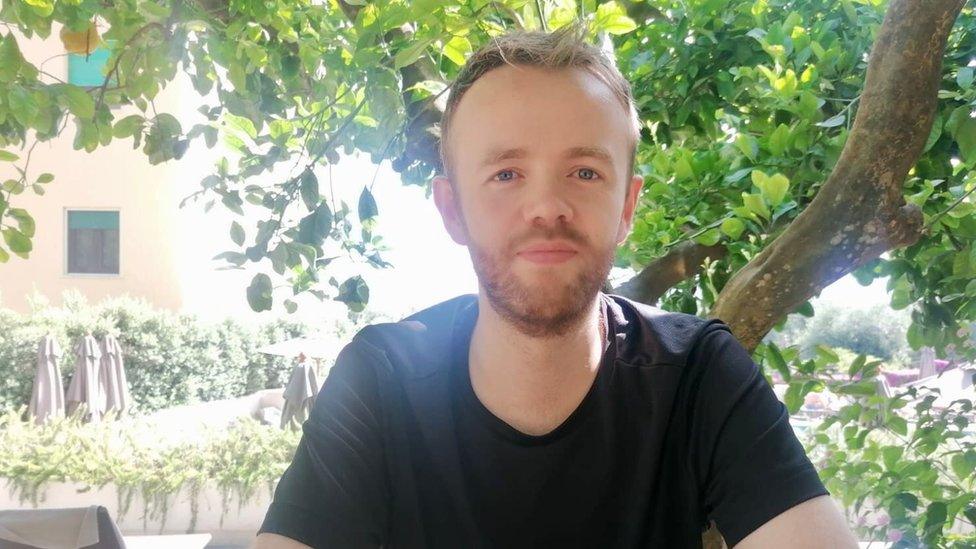
Gavin McLaughlin says Milan has escaped the extreme heat being experienced in southern Italy
He said the Italians were much more acclimatised to the heat. In Milan, the city becomes "like a ghost town" during the months of August and July when locals head to the coast or to lakes.
In issuing the red alerts the authorities are probably "more concerned with the tourists coming over at this time", said Gavin.
Periods of intense heat occur within natural weather patterns but globally they are becoming more frequent, more intense and are lasting longer due to global warming.
Last month was the hottest June on record, according to the EU's climate monitoring service Copernicus.
The heatwave affecting the Mediterranean could continue into August, according to the UN agency the World Meteorological Organization.
The UN weather agency has said extreme weather is "increasingly frequent in our warming climate" and underlines the need to cut emissions.
Related topics
- Published18 July 2023
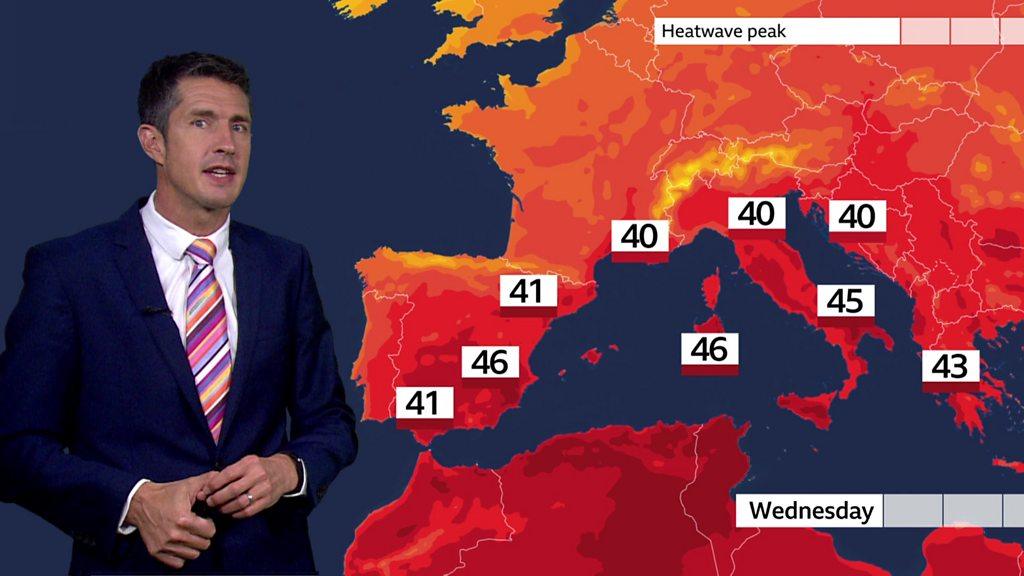
- Published16 July 2023
